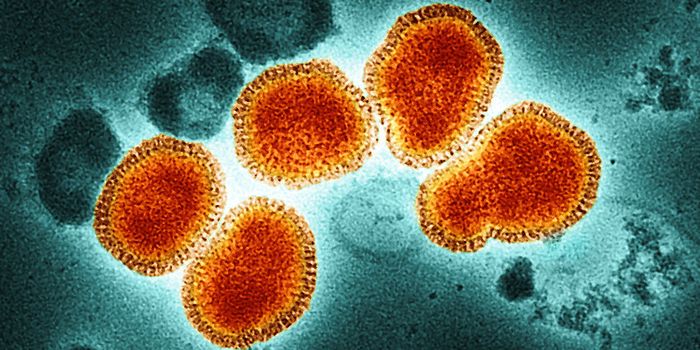How an Emerging Pathogen Takes Control of Host Immunity
Bacteria called Legionella are commonly found in the environment, and they love to live in hot water. They can also cause an infection known as Legionellosis or Legionnaires' disease, most of which can be traced back to a strain of Legionella known as Legionella pneumophila.
People may become infected with Legionella by inhaling contaminated mist or water droplets, and routes of infection include but are not limited to showers, faucets, grocery store misters, and water droplets that move through the ventilation systems of large buildings. Infected individuals don't usually pass the infection to others, but they may get a high fever, chills, muscle pains, or headache. A few days later, more symptoms may occur, like nausea, vomiting, or confusion. The infection can typically be treated with antibiotics, but may also be fatal if left untreated. Rates of the disease have been rising in the US and other parts of the world, though there are also seasonal trends.
Researchers in France have now discovered that during an infection, Legionella pneumophila can release extracellular vesicles that contain small RNA molecules into infected host cells. Legionella pneumophila can produce a variety of proteins that mimic the functions of the infected cells. The small, bacterial RNAs can take control of biochemical pathways, which can be manipulated for the advantage of the infection, promoting the survival and growth of the bacterium. This is one of many mechanisms that various microbial pathogens can use to evade the immunity of their host and facilitate their own proliferation. The findings have been reported in Nature Communications.
The research team identified two small, bacterial RNAs called RsmY and tRNA-Phe, which mimic the actions of the host cell's microRNA. The bacterial RNAs cause a reduction in the levels of a host cell protein called RIG-I, which normally detects the presence of invasive RNA molecules, and can trigger an immune response if they are found. Thus, the reduction in RIG-I leads impairs the host immune response and helps Legionella pneumophila replicate.
This research has provided new insights into an emerging pathogen, and could help scientists create new drugs to combat Legionellosis.
Sources: Pasteur Institute, Nature Communications









